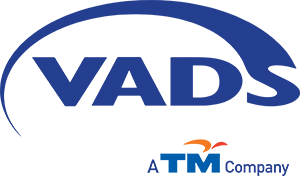Newsroom
- VADS
- Newsroom
- What is CRM? What are Its Benefits for Business?
What is CRM? What are Its Benefits for Business?
25 June 2024

Customer Relationship Management (CRM) is a system or strategy used by companies to manage and analyze customer interactions and data throughout the customer lifecycle. The goal is to improve business relationships with customers, assist in customer retention, and drive sales growth. CRM typically involves the use of technology to organize, automate, and synchronize various business aspects such as sales, marketing, customer service, and technical support.
Understanding CRM
CRM is not just a technological tool but also a business strategy aimed at understanding customer needs and optimizing relationships with them. Here are some key components of CRM:
- Customer Data: Collecting and storing detailed information about customers, including preferences, purchase history, and past interactions.
- Sales Automation: Automating the sales process to increase the efficiency and productivity of the sales team.
- Marketing Automation: Facilitating more effective marketing campaigns through customer segmentation and personalized messaging.
- Customer Service: Enhancing service quality by providing tools to track and resolve customer issues quickly.
- CRM Analytics: Analyzing customer data to gain insights that can be used to develop better business strategies.
Benefits of CRM for Business
Implementing CRM in business can provide several significant benefits. Here are some key advantages:
-
Increased Customer Satisfaction CRM allows companies to store and access customer information easily, enabling them to provide more personalized and responsive service. This can enhance customer satisfaction as they feel valued and cared for.
-
Improved Customer Retention CRM helps companies understand customer needs and preferences, allowing them to offer more relevant and suitable products or services. This can boost customer retention as they feel they are getting more value from their relationship with the company.
-
Optimized Sales Processes CRM enables sales teams to track prospects and opportunities more effectively, identify priorities, and manage the sales pipeline more efficiently. Sales automation can also help reduce the time needed to close transactions, thus increasing productivity.
-
Enhanced Marketing Effectiveness By using customer data collected in CRM, companies can better segment markets and run more targeted marketing campaigns. This allows companies to reach the right audience with the right message, increasing conversion rates and marketing ROI.
-
In-depth Analytics CRM provides various analytical tools that can help companies analyze customer data to gain valuable insights. With in-depth analytics, companies can make more informed and strategic business decisions, identify market trends, and evaluate marketing campaign performance.
-
Better Collaboration CRM provides a unified platform where all customer-related departments can share information and collaborate more effectively. This helps ensure that all teams have access to the latest information and can work together to deliver a consistent and high-quality customer experience.
-
Increased Revenue and Profitability By improving operational efficiency, optimizing sales, and enhancing marketing effectiveness, CRM can help companies increase revenue and profitability. Satisfied and loyal customers are more likely to make repeat purchases and recommend the company to others, driving business growth.
Implementing CRM
Implementing CRM requires careful planning and strategy. Here are some important steps in implementing CRM:
- Setting Goals and Objectives: Companies should set clear goals for CRM implementation, such as improving customer retention, increasing sales, or optimizing marketing campaigns.
- Choosing the Right CRM Platform: There are many CRM platforms available in the market, such as Salesforce, HubSpot, and Microsoft Dynamics. Companies should choose a platform that fits their needs and budget.
- Training: Staff should be trained to use the CRM system effectively. Training should cover how to manage customer data, run marketing campaigns, and use analytical tools.
- Integration with Other Systems: CRM should be integrated with other systems used by the company, such as ERP systems, to ensure a smooth and consistent flow of information.
- Monitoring and Evaluation: After implementation, companies should regularly monitor CRM performance and evaluate whether the set goals and objectives are being met. This also involves adjusting strategies and processes as needed.
CRM is a very powerful and strategic tool in the modern business world. By managing customer relationships more effectively, companies can increase customer satisfaction and loyalty, optimize sales and marketing processes, and boost revenue and profitability. Successful CRM implementation requires careful planning, effective training, and continuous evaluation to ensure that companies can fully leverage the potential of this technology.
PT VADS Indonesia is ready to help you deliver quality CRM tailored to your company's goals and targets. Our CRM system can be integrated with various other systems, ensuring a smooth and efficient flow of information. Additionally, we have agents trained with the latest technology developments, ready to provide the support you need. Consult your CRM needs with us now and optimize your customer relationships and business performance with PT VADS Indonesia!
Related News
05 March 2026
26 February 2026
23 February 2026
12 February 2026
12 February 2026
09 February 2026
05 February 2026
02 February 2026
29 January 2026
22 January 2026
19 January 2026
15 January 2026
12 January 2026
08 January 2026
05 January 2026
24 December 2025
22 December 2025
12 December 2025
04 December 2025
27 November 2025
20 November 2025
17 November 2025
13 November 2025
10 November 2025
03 November 2025
27 October 2025
23 October 2025
09 October 2025
02 October 2025
29 September 2025
29 September 2025
26 September 2025
26 September 2025
25 September 2025
22 September 2025
18 September 2025
15 September 2025
15 September 2025
11 September 2025
04 September 2025
04 September 2025
01 September 2025
28 August 2025
28 August 2025
21 August 2025
19 August 2025
11 August 2025
01 August 2025
30 June 2025
20 June 2025
19 June 2025
27 May 2025
02 May 2025
17 April 2025
14 March 2025
07 March 2025
28 February 2025
18 February 2025
14 February 2025
11 February 2025
07 February 2025
28 January 2025
24 January 2025
21 January 2025
14 January 2025
07 January 2025
02 January 2025
30 December 2024
27 December 2024
17 December 2024
13 December 2024
10 December 2024
06 December 2024
03 December 2024
29 November 2024
19 November 2024
14 November 2024
08 November 2024
05 November 2024
01 November 2024
31 October 2024
25 October 2024
22 October 2024
18 October 2024
16 October 2024
11 October 2024
09 October 2024
08 October 2024
07 October 2024
27 September 2024
24 September 2024
20 September 2024
13 September 2024
10 September 2024
06 September 2024
04 September 2024
02 September 2024
02 September 2024
09 August 2024
05 August 2024
26 July 2024
23 July 2024
02 July 2024
18 June 2024
14 June 2024
06 June 2024
31 May 2024
24 May 2024
26 April 2024
02 April 2024
08 March 2024
05 March 2024
01 March 2024
29 February 2024
27 February 2024
23 February 2024
20 February 2024
16 February 2024
13 February 2024
09 February 2024
06 February 2024
02 February 2024
30 January 2024
26 January 2024
23 January 2024
19 January 2024
17 January 2024
12 January 2024
09 January 2024
05 January 2024
04 January 2024
29 December 2023
26 December 2023
20 December 2023
13 December 2023
08 December 2023
05 December 2023
28 November 2023
23 November 2023
17 November 2023
14 November 2023
09 November 2023
08 November 2023
01 November 2023
24 October 2023
17 October 2023
17 October 2023
11 October 2023
10 October 2023
06 October 2023
04 October 2023
29 September 2023
27 September 2023
26 September 2023
22 September 2023
21 September 2023
15 September 2023
08 September 2023
01 September 2023
22 August 2023
18 August 2023
15 August 2023
15 August 2023
04 August 2023
26 July 2023
21 July 2023
04 July 2023
03 July 2023
30 June 2023
09 June 2023
01 June 2023
30 May 2023
26 May 2023
19 May 2023
17 May 2023
12 May 2023
04 April 2023
16 March 2023
09 March 2023
24 February 2023
22 February 2023
14 February 2023
13 February 2023
09 February 2023
31 January 2023
26 January 2023
23 January 2023
19 January 2023
12 January 2023
10 January 2023
06 December 2022
31 August 2022
17 June 2022
09 May 2022
20 April 2022
06 April 2022
01 April 2022
25 February 2022
23 February 2022
21 February 2022
18 February 2022
15 February 2022
11 February 2022
08 February 2022
07 February 2022
04 February 2022
02 February 2022
31 January 2022
17 January 2022
14 January 2022
07 January 2022
03 January 2022
28 December 2021
07 December 2021
01 November 2021
27 October 2021
25 October 2021
18 October 2021
15 October 2021
14 October 2021
21 September 2021
22 April 2021
15 April 2021
13 April 2021
08 April 2021
05 April 2021
26 March 2021
23 March 2021
18 March 2021
15 March 2021
12 March 2021
09 March 2021
04 March 2021
02 March 2021
26 February 2021
23 February 2021
19 February 2021
16 February 2021
11 February 2021
09 February 2021
04 February 2021
02 February 2021
26 January 2021
21 January 2021
19 January 2021
14 January 2021
12 January 2021
07 January 2021
05 January 2021
29 December 2020
17 December 2020
15 December 2020
10 December 2020
08 December 2020
04 December 2020
02 December 2020
18 November 2020
16 November 2020
13 November 2020
11 November 2020
10 November 2020
09 November 2020
06 November 2020
04 November 2020
28 October 2020
23 October 2020
12 October 2020
09 October 2020
06 October 2020
02 October 2020
30 September 2020
23 September 2020
19 September 2020
26 August 2020
22 July 2020
23 April 2020
16 April 2020
09 April 2020
26 March 2020
19 March 2020
12 March 2020
05 March 2020
27 February 2020
20 February 2020
13 February 2020
06 February 2020
